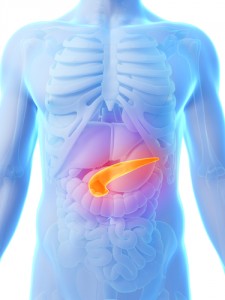 Results from a new study by the University of Pennsylvania School of Medicine revealed that patients with Type 1 diabetes who develop hypoglycaemia as a complication of insulin treatments over time are able to regain normal internal regulation of the condition after receiving pancreatic islet cell transplantation. The study entitled “Restoration of Glucose Counterregulation by Islet Transplantation in Long-Standing Type 1 Diabetes” was recently published in the journal Diabetes, and sought to determine whether intrahepatic islet transplantation improved endogenous glucose production (EGP) in response to hypoglycemia in T1D patients experiencing severe hypoglycaemia.
Results from a new study by the University of Pennsylvania School of Medicine revealed that patients with Type 1 diabetes who develop hypoglycaemia as a complication of insulin treatments over time are able to regain normal internal regulation of the condition after receiving pancreatic islet cell transplantation. The study entitled “Restoration of Glucose Counterregulation by Islet Transplantation in Long-Standing Type 1 Diabetes” was recently published in the journal Diabetes, and sought to determine whether intrahepatic islet transplantation improved endogenous glucose production (EGP) in response to hypoglycemia in T1D patients experiencing severe hypoglycaemia.
Severe hypoglycaemia is a complication of insulin treatments for patients with Type 1 Diabetes for T1D, that appears when the body’s protection mechanisms against low blood sugar are broken down over a long period of time. This causes several troublesome and dangerous symptoms such as tremors, irritability, confusion, dizziness, shortness of breath, and loss of consciousness.
The team of researchers led by Michael R. Rickels, MD, MS, an Associate Professor of Medicine and Medical director of the Pancreatic Islet Cell Transplant Program at Penn Medicine, studied 12 patients with ∼30 years disease duration before and 6 months after intrahepatic islet transplantation using stepped hyperinsulinemic-hypoglycemic and paired hyperinsulinemic-euglycemic clamps with infusion of 6,6-2H2-glucose. The researchers then compared the results with 8 nondiabetic patients.
Results revealed that after islet transplantation, patients’ time spent being hypoglycemic was practically eliminated. Additionally, patients were able to respond better to insulin-induced hypoglycemia after islet transplantation.
In a recent press release, Dr. Rickels commented, “The results of this study suggest that islet cell transplantation may be an effective treatment for patients with type 1 diabetes who are experiencing significant hypoglycemic events because their body isn’t able to recognize their low blood sugar levels. Currently, islet cell transplantation is considered investigational for type 1 diabetes patients, but this study shows that it has the potential to dramatically improve a patient’s ability to defend against and recognize symptoms of hypoglycemia and eliminate severe hypoglycemic episodes. Now that we’ve seen improvement in the protection against hypoglycemia as a result of islet cell transplantation, we’re evaluating the longer term durability of these restored defense mechanisms.”


